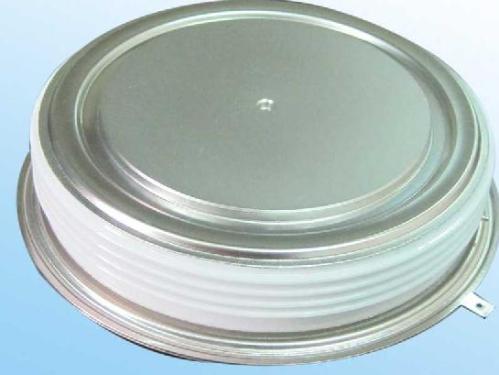
Privacy statement: Your privacy is very important to Us. Our company promises not to disclose your personal information to any external company with out your explicit permission.
 The full name thyratron, commonly known as thyristor, is a bistable power electronic device that contains 3 or more PN junctions that can switch from off-state to on-state or from on-state to off-state.
The full name thyratron, commonly known as thyristor, is a bistable power electronic device that contains 3 or more PN junctions that can switch from off-state to on-state or from on-state to off-state.
It refers to all PNPN type switches and can also refer to any device in this type of switch. Since the United States Bell Telephone Laboratory used the first thyristor in the industry in 1957, due to its excellent performance, it has quickly received attention from various countries. With the advent of new materials and the adoption of new processes, the current capacity of a single thyristor has grown from several to several thousand amps. The withstand voltage level has increased from a few hundred volts to several thousand volts, and the operating frequency has been greatly improved. The dynamic parameters of the devices have also been improved. Great improvement. In the 1980s, ordinary thyristors had a withstand voltage rating of 3,500 amps/6,500 volts and a thyristor up to 3000 amps/4,500 volts. With the development of applications, thyristors are developing along high voltage, high current, fast, modular, power integration, and low cost.
The working principle of the structure and working principle is that when the thyristor plus forward voltage (anode is connected positive and cathode is negative), if the gate circuit is open circuit, J1, J3 junction is in positive deviation, J2 junction is in reverse bias, and its volt The safety characteristics and diode reverse characteristics are similar, and the thyristors are in the positive blocking state. If the gate electrode adds a certain forward voltage to the cathode, then the N2 region injects electrons into the P2 region. These electrons diffuse through the P2 region to the 2 junction depletion layer (also called high resistance layer, barrier layer). Due to the effect of the depletion layer electric field, the injected electrons reach the N1 region, and the emitter current of the equivalent transistor 2 generates excess electrons. In order to neutralize excess electrons, there must be an equal number of holes injected into the N1 region from the P1 region. Similarly, these holes can reach the P2 region and form the emitter current of the equivalent transistor 1 . The two transistors that make up the thyristor supply base electric power to each other due to the transport phenomenon of internal carriers. The thyristor turns on when the sum of the common base current amplification of two transistors (α1+α2) is greater than or equal to one. Once the thyristor is turned on, the current flowing through it is large, and α1 and α2 increase with the current, and it is sufficient to continue to ensure that (α1+α2) ≥1. At this time, the thyristor can be turned on even if the gate circuit is open. When the applied forward voltage is greater than or equal to the transition voltage, the thyristor will also conduct, which is called hard opening. When the thyristor is applied with a reverse voltage, the device is blocked due to the reverse bias of the J1 and J3 junctions.
Manufacturing and classification thyristors are made of high-resistance single crystal silicon. Single chip diameter up to tens of millimeters, the use of planar technology made of PN junction, the use of electrons and holes carrier charge regenerative principle of the principle of work, allowing P1N1P2 each layer has a larger thickness. The silicon wafer has a total thickness of several hundred micrometers, so the thyristor is resistant to high voltage and has a large flow capacity. Special life control technology is used in production. Compared with the ion tube, it has faster switching speed, lower power consumption, smaller size, and significant energy saving.
Thyristor can be divided into reverse thyristor, fast thyristor, reverse thyristor, bidirectional thyristor, can turn off thyristor, light control thyristor, field control thyristor and Thyristor Module according to its use requirements and its own performance characteristics. Thyristors constitute a major category of power electronic devices and they are also promising futures.
Phase Control Thyristor power thyristor
August 12, 2024
When the thyristor damage need to check the analysis of the reasons, the core can be removed from the cooling jacket, open the core box and then remove the chip, observe the signs of damage to...
A special sealing device is made by the method of disposing the dust in the radiator. This kind of device only leaves the fan through hole. Go to the construction site and construction site to...
In order to prevent damage to the thyristor caused by the failure of the AC circuit inversion of the thyristor, the traditional method is to use a fast fuse for overcurrent protection. The advantage...
Scope and characteristics The controller is a thyristor closed-loop trigger controller of a three-phase phase-controlled rectifier. Suitable for three-phase bridge semi-control, three-phase bridge...
Email to this supplier
August 12, 2024
January 07, 2021
December 07, 2020

Privacy statement: Your privacy is very important to Us. Our company promises not to disclose your personal information to any external company with out your explicit permission.

Fill in more information so that we can get in touch with you faster
Privacy statement: Your privacy is very important to Us. Our company promises not to disclose your personal information to any external company with out your explicit permission.